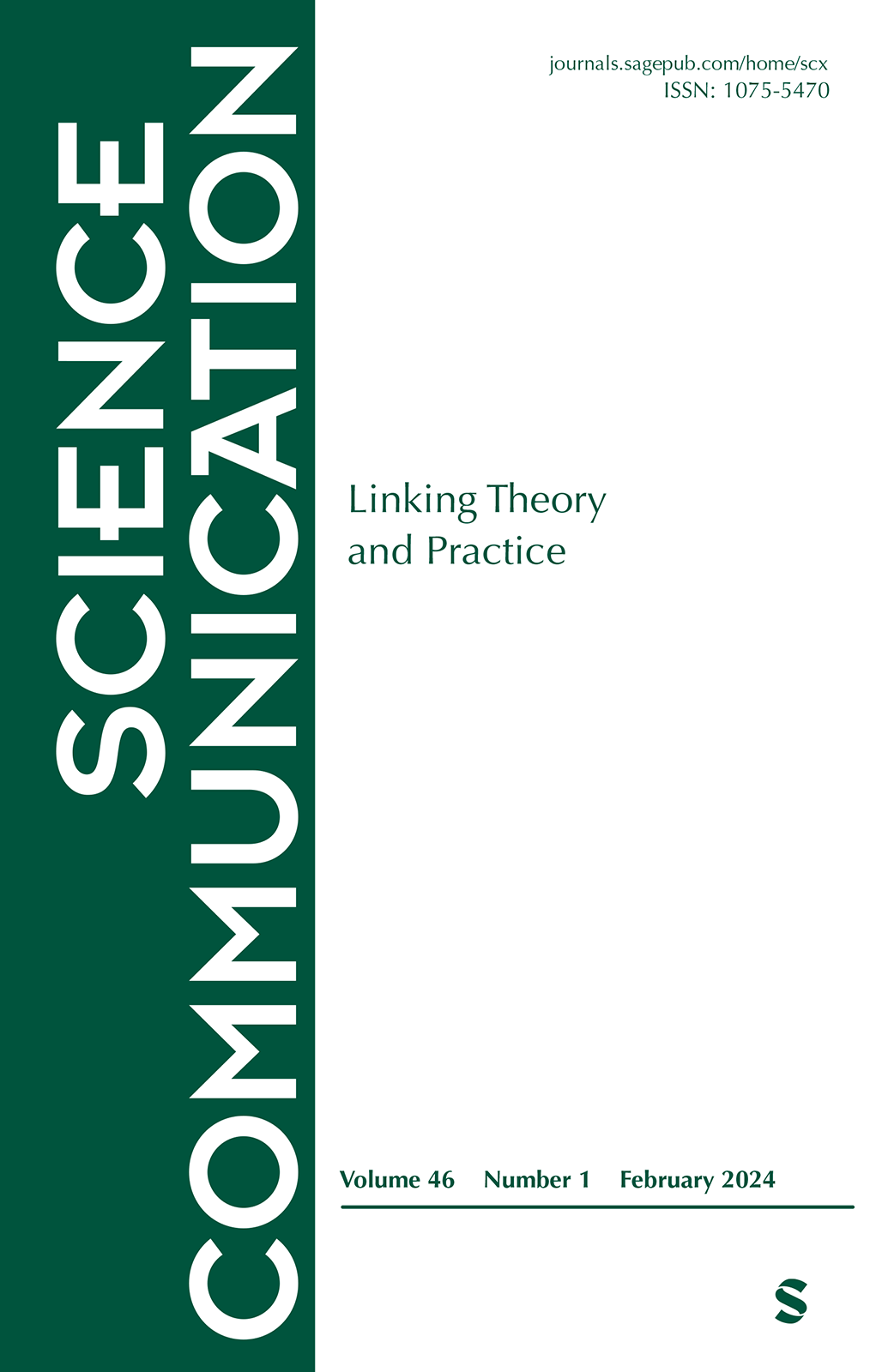是否接种疫苗?不确定性传播在公众对新冠肺炎的理解和行为中的作用
IF 4.1
1区 文学
Q1 COMMUNICATION
引用次数: 14
摘要
关于COVID-19疫苗的沟通需要循证战略。我们提出了一项定量调查的结果,该调查测量了参与者对有关疫苗的低或高不确定性信息的理解、信任和决策。传达高度不确定性的沟通导致较低的自我评估理解,但对可能结果的实际理解较高。传达低不确定性的沟通提高了以前反对疫苗的人对疫苗的接受程度。这表明,随着时间的推移,传播的不确定性可能会产生不同的影响,根据受众先前对疫苗的态度调整信息传递可能很重要。这些发现支持有必要进一步调查不确定性沟通如何影响疫苗接受。本文章由计算机程序翻译,如有差异,请以英文原文为准。
To Vaccinate or Not? The Role Played by Uncertainty Communication on Public Understanding and Behavior Regarding COVID-19
Communication regarding COVID-19 vaccines requires evidence-based strategies. We present findings from a quantitative survey measuring participants’ understanding, trust, and decision-making in response to information conveying low or high uncertainty regarding the vaccine. Communication conveying high uncertainty led to lower self-assessed understanding but higher actual understanding of possible outcomes. Communication conveying low uncertainty increased vaccine acceptance by those who previously opposed vaccines. This indicates that communicating uncertainty may have different effects over time and that adjusting messaging depending on audiences’ prior vaccine attitudes might be important. These findings support the need for further investigation of how uncertainty communication influences vaccine acceptance.
求助全文
通过发布文献求助,成功后即可免费获取论文全文。
去求助
来源期刊

Science Communication
COMMUNICATION-
CiteScore
13.50
自引率
4.40%
发文量
19
期刊介绍:
Science Communication is a prestigious journal that focuses on communication research. It is recognized globally for publishing top-quality manuscripts that demonstrate excellent theoretical frameworks and robust methodology. Our journal embraces a broad definition of science, encompassing not only the natural and physical sciences but also social science, technology, environment, engineering, and health. Regardless of the scientific area, effective communication is always the focal point of our investigations.
Apart from theoretical and methodological rigor, we place great emphasis on the practical implications of scientific communication. Therefore, we expect all submitted manuscripts to address the real-world applications and significance of their research, alongside theoretical considerations.
In summary, Science Communication is an internationally renowned journal dedicated to bridging the gap between science and society. By promoting effective communication in various scientific domains, we strive to engage readers with intriguing research that has tangible implications for the world around us.
 求助内容:
求助内容: 应助结果提醒方式:
应助结果提醒方式:


